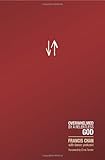My friend Mark Mould and I have been plotting the next Saturday Morning Theology course to run at our church. This time we want to cover what is known as “pneumatology”, or the doctrine of the Holy Spirit (the last two were on ecclesiology and soteriology).
We’re putting together a reading list of good books that we have read on doctrine of the Holy Spirit, along with some others that we want to read as part of our preparation. It is not a list of books we completely agree with, as we want to take in a variety of perspectives. I would be interested in any further recommendations you have. I’ve linked to the ones I have reviewed on this blog.
- Jesus Baptises in One Holy Spirit – David Pawson
- Joy Unspeakable – D M Lloyd-Jones
- God Inside Out – Simon Ponsonby
- Forgotten God – Francis Chan
- More – Simon Ponsonby
- Keep in Step with the Spirit – J I Packer
- Showing the Spirit – Don Carson
- Word and Spirit Together – David Pawson
- Convergence – Sam Storms
- On Revival – Jonathan Edwards
- Receiving the Holy Spirit and His Gifts – Terry Virgo & Phil Rogers
- God’s Empowering Presence – Gordon Fee
- Surprised by the Voice of God – Jack Deere
- I believe in the Holy Spirit – Michael Green
- The Spirit and the Church – John Owen
- The Holy Spirit – John Owen
- The Gift of Prophecy – Wayne Grudem
- Fire and Blood – Mark Stibbe
- Gift and Giver – Craig Keener
- The Holy Spirit in the Old Testament – Christopher Wright
- Baptism and Fulness – John Stott
- The Beginners Guide to Spiritual Gifts – Sam Storms
- The Holy Spirit & Spiritual Gifts – Max Turner
- Who’s Afraid of the Holy Spirit – Dan Wallace
- Post-Charismatic – Rob McAlpine
- The Charismatic Theology of St Luke – Roger Stronstad
- 2000 years of Charismatic Christianity – Eddie Hyatt
- The Presence and the Power – Gerald Hawthorne
- Flame of Love – Clark Pinnock
- The Holy Spirit in History – Stanley Burgess (3 books)
- Reflected Glory – Tom Smail
- The Message of the Holy Spirit – Keith Warrington
My talks include one on the Baptism in the Spirit (maybe I will revisit some ideas I blogged about a while back), one on Word and Spirit (which I have tonnes of notes on, and might turn into a blog series at some point), one on Jesus and the Spirit (I’m hoping Hawthorne’s book will be particularly helpful for this one), and one on the Spirit in church history from the Puritans through to the present day (I’m particularly looking for book suggestions for what the Puritans said on the Spirit, and I also want to read a bit on the theology of the holiness movement).


